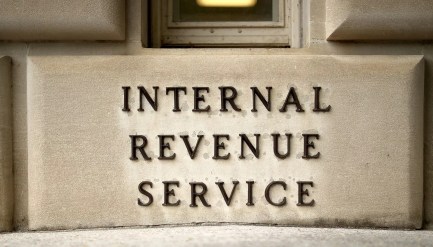If your church goes through several months of low giving, will you be able to keep your doors open?
A church without necessary reserves will be scrambling to operate in the short term, no matter what the other balances are. Positive net income and net asset balances won’t make up for inadequate cash reserves or help in months when giving is down.
Fortunately, there are five cash flow ratios and measurements you can use to monitor your church’s reserves and identify any necessary adjustments. These represent important indicators every church should understand.
1. Days of Expendable Net Asset Reserves
Unrestricted Undesignated Net Assets + Board-designated Net Assets for Operations
_____________________________________________________
Cash Expenses (Total Expenses – Depreciation)
There are three cash flow ratios you can use to calculate how many “days” of cash reserves your church has, using different perspectives from the financial statements. To calculate how many day of reserves you have, multiply the ratio above by 365.
The first ratio tells how many days of operating expenses are available in net asset reserves. It takes into account the accrual of current assets and current liabilities. Keep in mind that the term “expendable net assets” represents the total resources available to spend on operations, excluding future gifts made or revenues generated by the church. It’s similar to a savings account.
Expendable net assets consist of unrestricted, undesignated net assets, which are net assets that result from achieving positive net income from all sources of revenues (excluding restricted revenues). It also includes amounts designated by the board for operating purposes other than capital expenditures. You divide this total by the amount of cash expenses to find your net asset reserves. Since all of these ratios measure cash flow, we use the term “cash expenses.” These are total expenses less deprecation, the most significant non-cash expense recorded.
This ratio can be temporarily high if the church has large unrestricted gifts on record that have not been spent by year’s end. Conversely, it can also appear low if the church incurs a large one-time expenditure that won’t be repeated in the future.
2. Days Operating Cash and Investments on Hand to Fund Annual Cash Expenses
Operating Cash and Investments
______________________________
Cash Expenses + Capitalized Interest
This ratio calculates the days of operating cash and investments on hand to fund annual cash expenses specifically related to very liquid assets. That means it only considers operating cash and investments, not other current assets and liabilities. This number is divided by the sum of cash expenses plus capitalized interest (interest paid in cash but not expensed by the church). Once again, to find the amount of days this allows, multiply the ratio by 365.
This ratio will calculate a result that is slightly different (typically higher) than the first ratio (net asset reserves) because it does not include the impact of other current assets and liabilities.
We believe an appropriate benchmark, or goal, for this ratio, is to have 40 to 80 days of cash expenses on hand. Furthermore, a result of less than 20 days could be interpreted as a “red flag”—an indicator that your church should take action quickly to improve this ratio.
3. Available Days of Cash Flow Coverage
The last “days of cash” ratio represents the number of days of operations (including making scheduled debt payments) available when calculated from the sum of operating cash flow. This number comes from the statement of cash flows, operating cash and investments on hand at the beginning of the year, and the amount available from the operating line of credit. In other words, if your church used all of the cash generated from operations, all available cash and investments on hand at the beginning of the year, and your available line of credit, how many days will you be able to operate on these sources of cash? This ratio represents your maximum level of reserves, and should always be the highest of the three “days” ratios.
4. Liquidity Ratio
Operating Cash and Investments
_________________________________________
Current Liabilities – Building Fund Current Liabilities –
Deferred Revenue – Short-Term Construction Line of Credit
The liquidity ratio measures how operating cash and investments are able to cover current operating liabilities, which exclude current building fund liabilities. (These typically have a separate source of cash from restricted revenues or budgets.) This ratio will tell the reader how many times actual operating liabilities can be funded from operating reserves.
A low result may indicate that the church is keeping fewer liquid reserves and is less likely to be able to handle unexpected operating expenses, events, or new opportunities that may come along.
5. Net Cash Availability
Total Cash and Investments – Adjusted Current Liabilities (Current Liabilities Excluding
_____________________________________________________
Amounts Borrowed on a Construction Line of Credit) – Temporarily Restricted Net Assets
The fifth and final cash flow ratio is actually a measure, because it is the sum of total cash and investments less certain amounts the church may owe or be required to spend for specific purposes due to donor restrictions. This measurement calculates the amount of cash available for other uses after the church has satisfied its adjusted current liabilities and set aside appropriate funds for temporarily restricted projects resulting from gifts given by donors who have restricted their use. Amounts borrowed on a construction line of credit are also excluded, as they will ultimately be refinanced with the debt and paid over time.
The statement of financial position answers the question, “How much cash do we have?” but it doesn’t answer the question, “Whose cash is it and how much of it can we spend?” The answers to those questions are typically very different. Therefore, this is one of the most important measures provided to your church leadership.
We believe the minimum benchmark for this number is at least one month’s worth of cash expenses. Any positive amount less than this is in the warning range. Any negative amount indicates that the church is borrowing from temporarily restricted funds and could be interpreted as a red flag, a warning that corrective action is needed.
Monitoring Your Church’s Financial Health
Measuring and monitoring cash flow and other key financial data will help your leadership team assess your church’s financial health, identify areas for improvement, and be good stewards of your resources. The five ratios and measures outlined above provide a good start for monitoring cash flow and reserves.
CapinCrouse also offers the Church Financial Health Index™ for churches that do not have the time or capability to develop key financial metrics and indicators. More information about this online dashboard is available at www.capincrouse.com/churchhealth.
Vonna Laue has worked with ministries and churches for more than 20 years. Vonna was a partner with a national CPA firm serving not-for-profit entities through audit, review, tax, and advisory services. Most recently, she held the role of executive vice president for a Christian ministry that works to enhance trust in the church and ministry community.


















